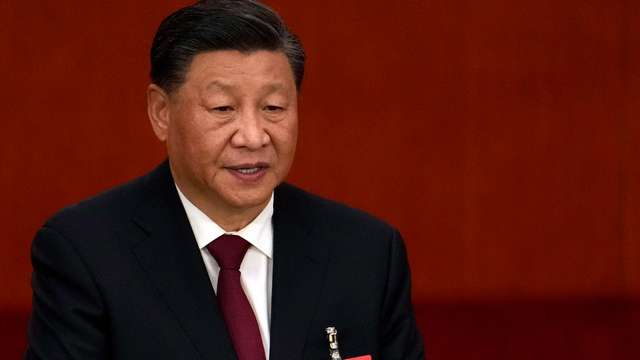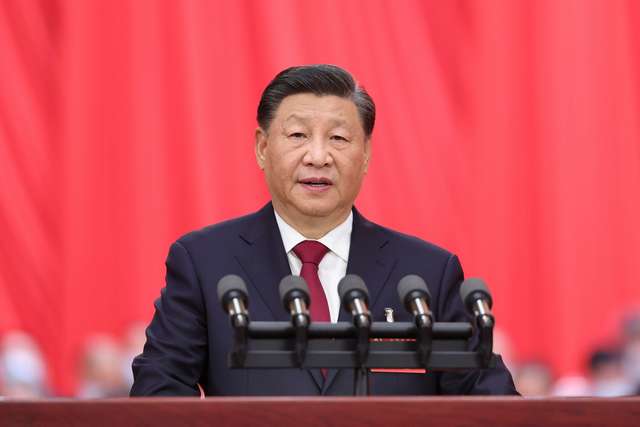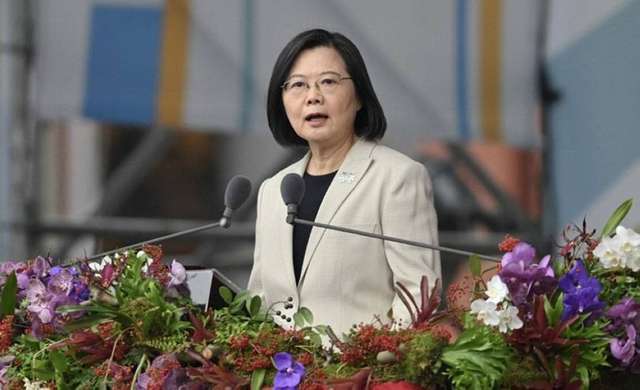
One of the seven wonders of the world is the Great Wall of China. But in the coming years, there could be another great wall. This time, it is not a literal wall but a figurative one.
Chinese President Xi Jinping has vowed to modernise the country’s armed forces to make it a “great wall of steel,” that would not be penetrable. The president stated this during the annual meeting of the Chinese parliament after his confirmation as the country’s president for a third term.
“(We must) build the People’s Liberation Army into a great wall of steel that effectively safeguards national sovereignty, security, and development interests,” president Xi stated. “Security is the foundation for development, stability is the prerequisite for prosperity.”
Monday was the closing session of the National People’s Congress, with about 3,000 delegates in attendance.
Last week, the National People’s Congress unanimously endorsed President Xi Jinping for a new term of five years, making him the longest-serving leader since the emergence of Communist China in 1949.
Xi began his speech by thanking Congress for his reappointment as president, saying he knew the responsibility on his shoulders.
“This is my third time assuming the lofty position of president. The trust of the people is the biggest driving force for me to move forward, and also a heavy responsibility on my shoulders,” President Xi said.
President Xi’s comment on building a strong military has been connected to the recent rift with the United States on several issues. Although the US was not mentioned, Xi’s statement had been seen by many as targeted towards the United States and its allies, whom he described as “bullying foreign powers.” He said the Communist Party has “wiped clean the national humiliation.”
“We have finally washed away the national humiliation, and Chinese people are the master of their own destiny,” Mr Xi said. “The Chinese nation has stood up, become rich and is becoming strong.”
Taiwan and Hong Kong will remain parts of China, Xi says
A speech by President Xi would be incomplete without mentioning Taiwan, the self-ruled Island that Beijing believes is part of China. The 69-year-old said the Communist party would continue to pursue its goal of “national reunification.” He said China must fight against the calls for independence and prevent the interference of external forces.
Although Taiwan has been independently ruled for decades, the Chinese Communist party continues to insist that it would be reunited with mainland China, even if it means doing so through a war. However, the United States has vowed to defend Taiwan militarily should China invade the Island country, a move Beijing sees as an interference in its domestic affairs.
On the other side of China is Hong Kong. Unlike Taiwan, it is regarded as part of China that is ruled differently from mainland China. The one-country, two-systems formula has been in operation since the British handed over the control of Hong Kong to China over 25 years ago.
Under this system, both countries are regarded as the same but are governed differently. However, the government in Hong Kong is appointed by the Chinese Communist Party.
Despite calls for independence in Hong Kong, president Xi said he would continue the one-country two system formula. The government in Beijing had in the past cracked down on protesters demanding an independent Hong Kong. Only those loyal to the Communist party are also appointed as leaders in Hong Kong.
The United States and China; enemies that are friends
As the years go by, the relationship between Beijing and Washington has continued to grow further apart. That has never been so obvious as it has become lately. Russia and China have become close allies despite the unnecessary war in Ukraine. There are even suggestions that China could be planning to supply arms to the Kremlin, a contradiction to the expectation of the United States.
The issue of Taiwan, Hong Kong, and most recently, the Chinese spy balloon had further caused division between the two countries. Last week, the Chinese new foreign minister Qin Gang called on the United States to hit the brakes if it does not want a conflict that could threaten the existence of mankind.
In all of these, there had been constant communication between the two countries, as US Secretary of State Anthony Blinken recently visited Beijing for talks. Hence they are friends on the outside but enemies on the inside. With the superior military might of the United States, China could be on its way to competing militarily to either meet or surpass what the United States have. Could they?






0 Comments